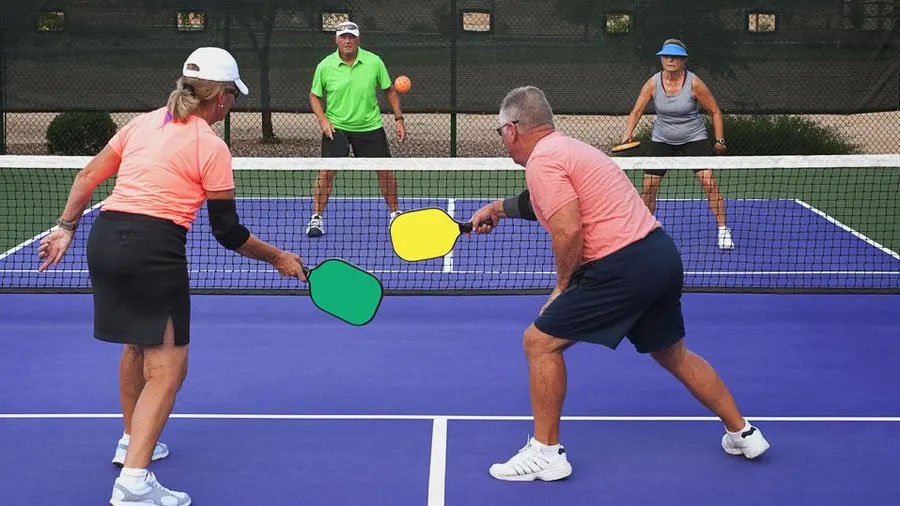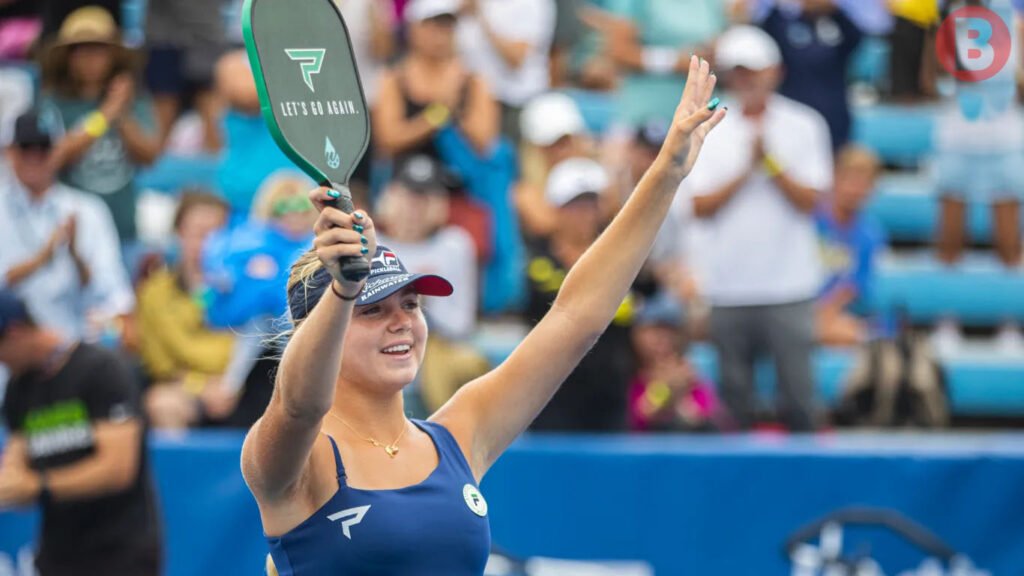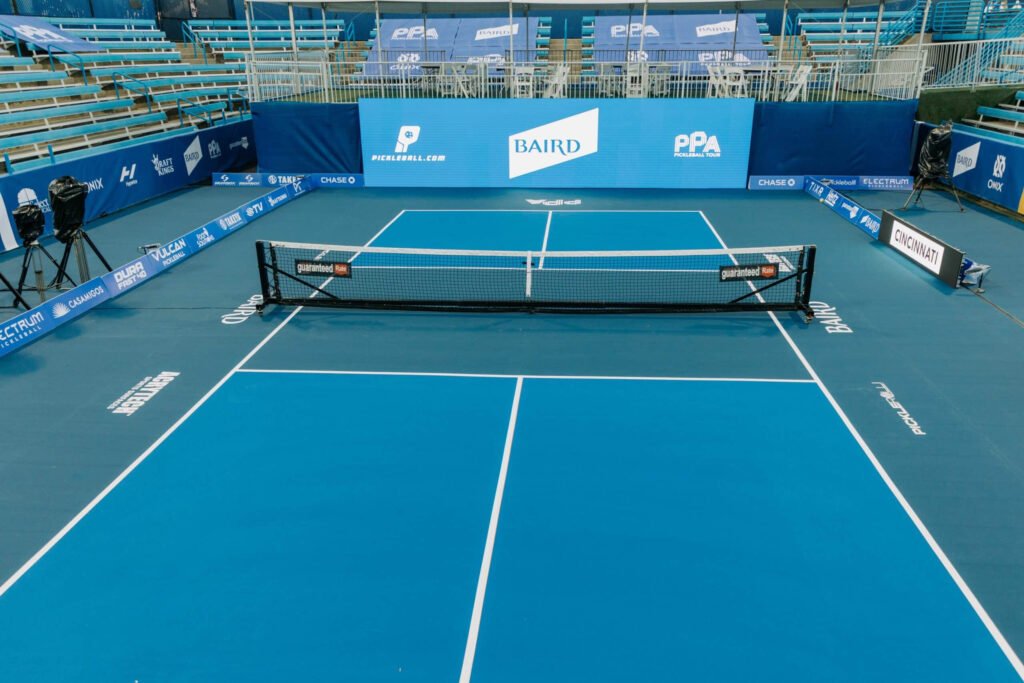
Welcome to the world of Pickleball, a fun and fast-paced sport that is taking the athletic world by storm! If you haven’t heard of it yet, don’t worry – we’re here to fill you in on all things Pickleball and whether this exciting game could potentially make its mark on the Olympic stage. So, grab your paddle and let’s dive into the debate: Is Pickleball an Olympic Sport?
The Growth of Pickleball

Pickleball has experienced a remarkable surge in popularity over the past few years, evolving from a backyard game to a mainstream sport. People of all ages are drawn to its unique blend of tennis, badminton, and ping pong, making it accessible and engaging for everyone. The simplicity of the rules combined with the fast-paced nature of the game has captivated players around the world.
Communities are embracing pickleball by building dedicated courts and organizing tournaments, fostering a sense of camaraderie among players. Social media platforms are buzzing with pickleball enthusiasts sharing tips and tricks, creating a vibrant online community that further fuels the sport’s growth.
With more exposure on television and sponsorship deals rolling in, pickleball is no longer just a niche activity but an exciting sporting phenomenon on the rise. As more people pick up paddles and join in on the fun, it’s clear that pickleball is here to stay.
Arguments for Pickleball as an Olympic Sport

Pickleball enthusiasts argue that the sport deserves a spot in the Olympics due to its growing popularity worldwide. With millions of players globally and a strong following, it has proven its appeal across different age groups and skill levels.
Advocates believe that Pickleball showcases athleticism, strategy, and sportsmanship, making it a suitable addition to the Olympic lineup. The intensity of rallies combined with quick reflexes required adds an element of excitement for both players and spectators.
Additionally, including Pickleball in the Olympics could attract more participants to the sport and encourage healthy competition among nations. It presents an opportunity for athletes from various backgrounds to compete on a prestigious international stage.
Moreover, as an inclusive sport accessible to people of all abilities, Pickleball aligns with the values of diversity and inclusivity promoted by the Olympic Games. Its simplicity yet complexity makes it appealing for both amateurs and seasoned athletes alike.
Counterarguments against Pickleball as an Olympic Sport
While the popularity of Pickleball has been on the rise in recent years, there are some who argue against its inclusion as an Olympic sport. One common counterargument is that Pickleball lacks the long-standing tradition and history of other Olympic sports. Critics believe that newer sports like Pickleball may not have earned their place among more established competitions.
Another point raised is the limited international participation in Pickleball compared to other sports. Some argue that for a sport to be considered for the Olympics, it should have a widespread presence across various countries and continents. The global reach and competitive depth of a sport are crucial factors taken into account by Olympic committees.
Additionally, concerns about the physical demands and skill level required for Pickleball to be on par with traditional Olympic sports have been voiced. Skeptics question whether Pickleball possesses the athleticism and competitiveness necessary to meet Olympic standards without diluting its essence as a recreational activity.
Other Non-Traditional Olympic Sports
When we think of the Olympics, sports like swimming, gymnastics, and track and field immediately come to mind. However, there are several non-traditional sports that have made their way into the Olympic Games over the years. Take for instance skateboarding, which made its debut at the 2020 Tokyo Olympics.
Another non-traditional sport that has gained popularity is surfing. Surfers from around the world now have the opportunity to compete for Olympic medals in this thrilling water sport. Additionally, sports like rock climbing and karate have also been introduced as part of efforts to modernize the Olympic program.
These non-traditional sports bring a fresh perspective to the Games and attract new audiences who may not typically watch traditional events. The inclusion of these unique sports adds diversity and excitement to the Olympics, showcasing a wide range of athletic abilities beyond what we’re used to seeing on TV.
Possibilities for the Future of Pickleball in the Olympics

As the popularity of pickleball continues to soar across the globe, the possibility of it becoming an Olympic sport is a hot topic among enthusiasts. With its fast-paced gameplay and inclusive nature, many believe that pickleball has what it takes to captivate audiences on the grand stage of the Olympics.
If pickleball were to make its debut in the Olympics, it could attract a whole new demographic of fans who are drawn to its unique blend of tennis, badminton, and table tennis elements. The fast rallies and strategic play would undoubtedly make for exciting matches that showcase athleticism and skill.
Furthermore, introducing pickleball to the Olympics could open up doors for more recognition and growth opportunities for the sport internationally. As more countries embrace this fun and accessible game, we might see a surge in talent development and competitive leagues worldwide.
While there are challenges ahead in terms of official recognition by the International Olympic Committee (IOC), one thing is certain – pickleball’s future looks bright as it continues to gain momentum towards potentially joining the prestigious lineup of Olympic sports.
Conclusion
While Pickleball has gained significant popularity and momentum in recent years, the road to becoming an Olympic sport may still have some hurdles to overcome. With its growing global appeal, passionate community of players, and ease of accessibility, there is a strong case for Pickleball to be considered for inclusion in future Olympic Games. Whether or not it will eventually make its debut on the world’s biggest sporting stage remains uncertain. However, one thing is clear – Pickleball enthusiasts around the world will continue to advocate for its recognition as a legitimate and competitive sport deserving of Olympic status.